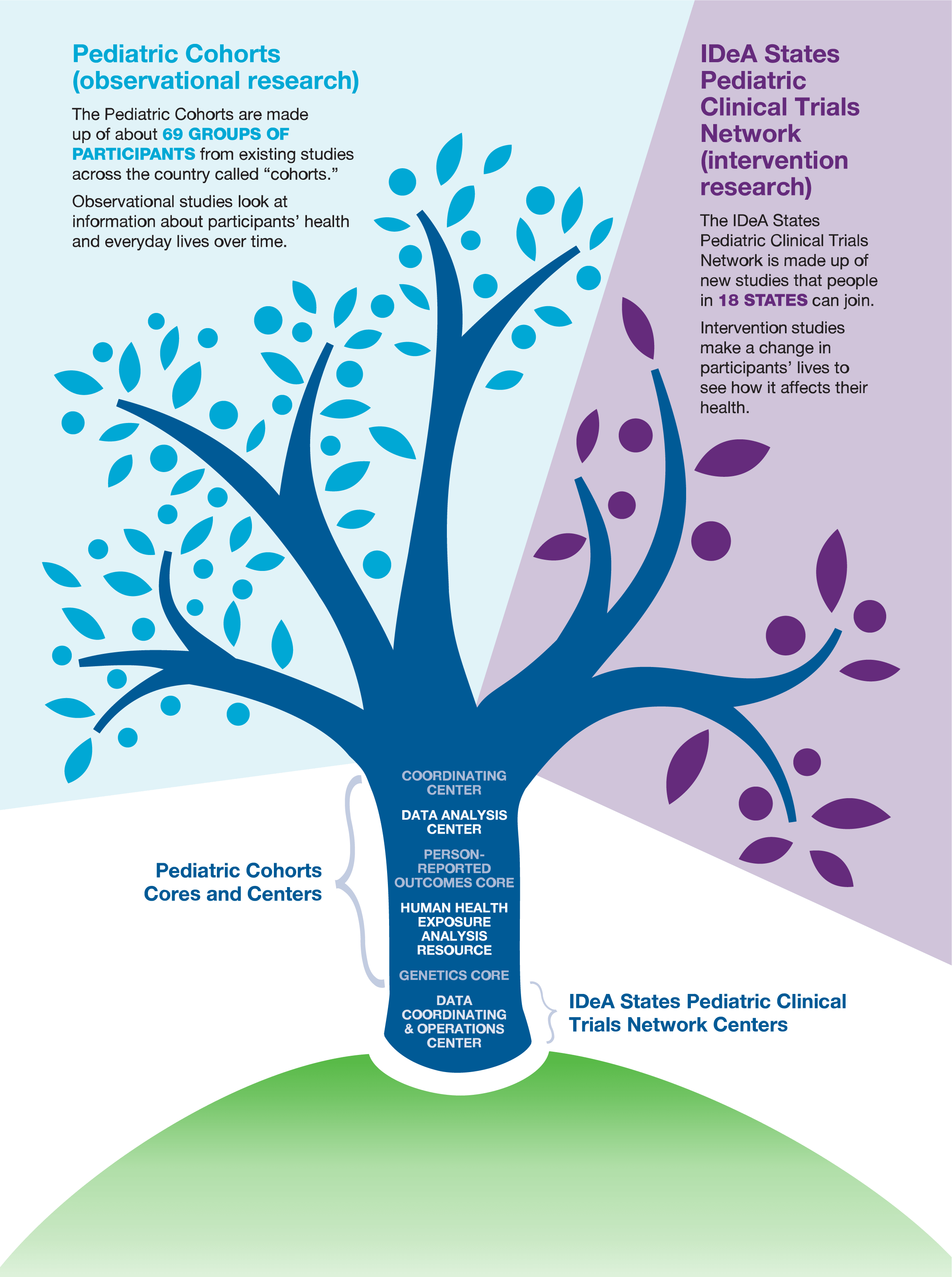Types of ECHO Research
The ECHO Program studies five areas of health. These are:
The ECHO Program researches environmental influences that may affect these areas of child health by collecting information from participants. Environmental influences are non-genetic factors that impact people’s lives such as:
- Air pollution
- Family support
- Stress
- Sleep habits
- Diet
To find out more about these influences, ECHO uses two types of research: observational research and intervention research.

Observational research
ECHO conducts observational research through its Pediatric Cohorts. Through these 69 cohorts, ECHO researchers are able to observe, or look at, information about a participant’s health over time. This type of research does not ask participants to change their lifestyles or health care practices, such as taking new medicines, starting a new diet, or having a procedure. ECHO’s observational research also includes existing data, called extant data, to help collect more information on environmental influences.
Intervention research
ECHO’s intervention research involves making changes in participants’ lives to see how the changes affect their health. ECHO uses the ECHO IDeA States Pediatric Clinical Trials Network (ISPCTN) to conduct intervention research. The ECHO ISPCTN provides access to state-of-the-art clinical trials in rural populations in 18 states.
Read ECHO’s research summaries to learn more about our research in action.



